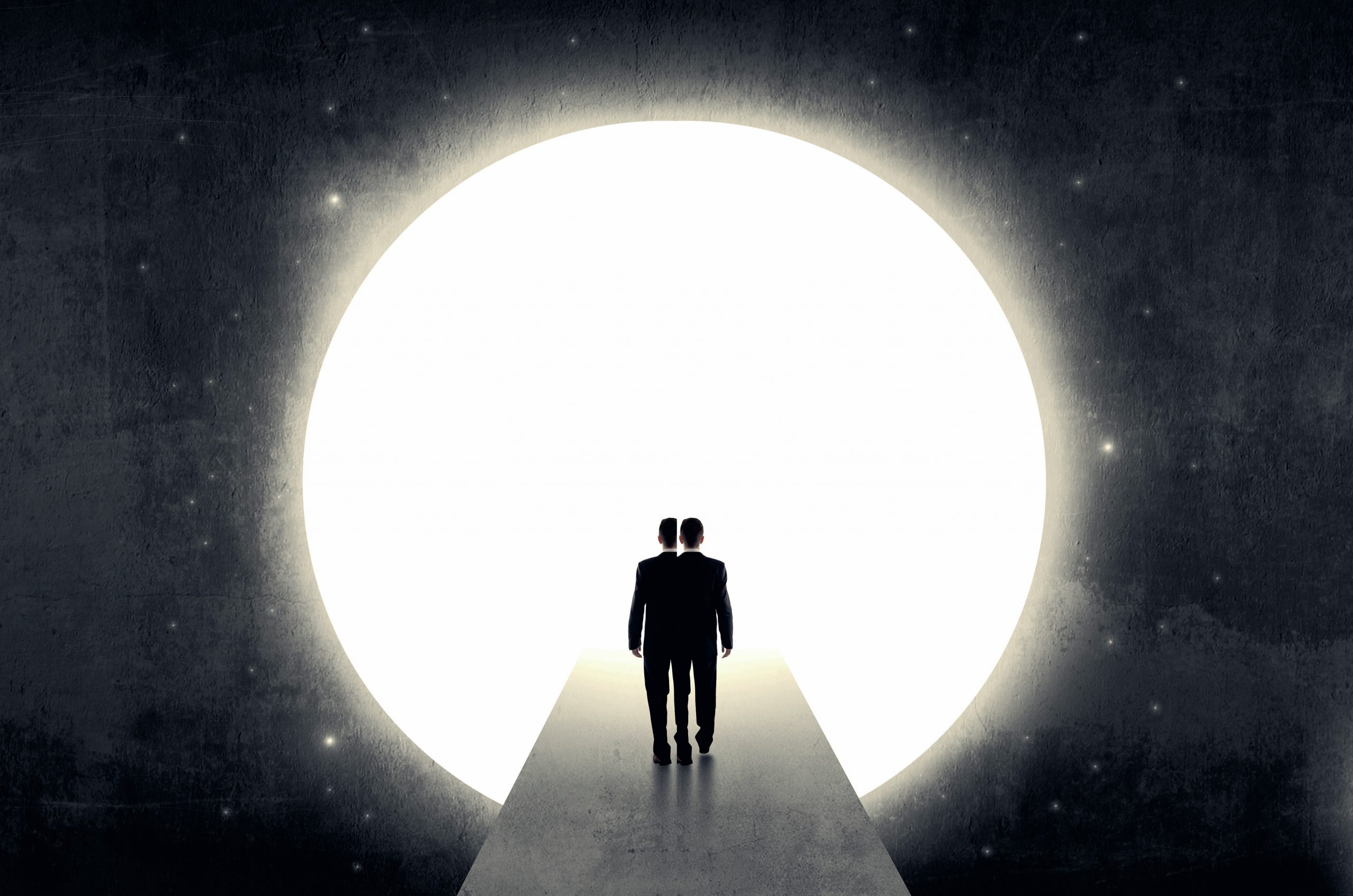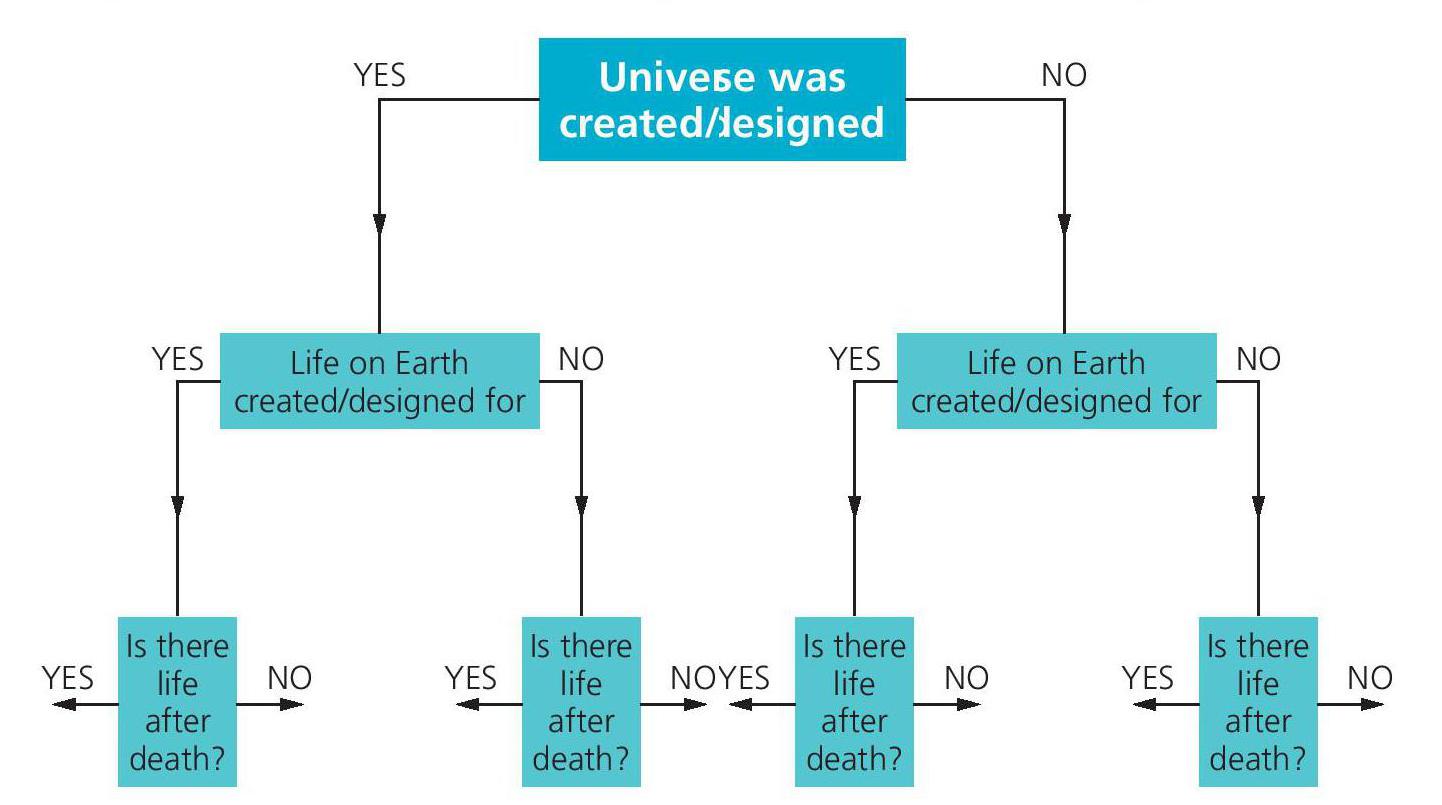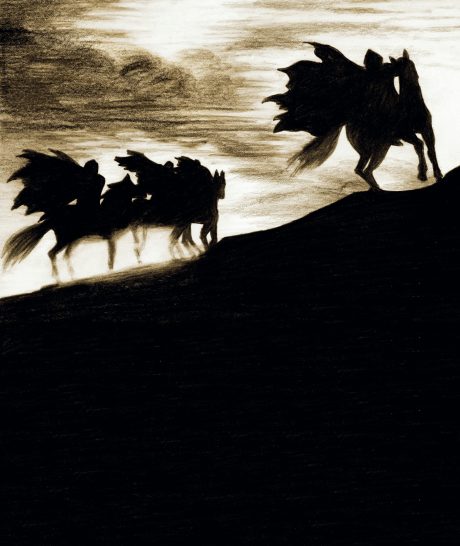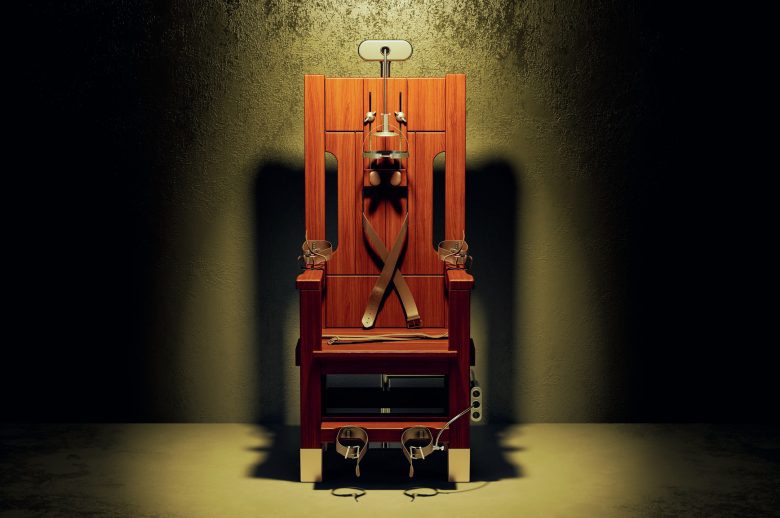grade booster
Is there life after death?
Does life, in the sense of personal identity ever really end or is there life after death? Many people — religious and non-religious — find the prospect of a post-mortem existence highly desirable for many reasons

All boards: philosophy options
RSReviewExtras
Download this poster and a revision PowerPoint on ‘life after death’ at www.hoddereducation.co.uk/rsreviewextras
Christian perspective
Christian eschatology offers two eschatological perspectives: individual and universal eschatology (see RELIGIOUS STUDIES REVIEW, Vol. 13, No. 3, pp. 16–17).
Islamic perspective
Islamic beliefs in the afterlife are, in many ways, similar to Christian beliefs.
• God has a plan for the whole universe and all human beings.
• At the Day of Judgement the whole universe will be destroyed and the dead raised to stand before him.
• That day will be the beginning of an unending life on which every individual will be judged and rewarded by God according to their deeds.
The Qur’an offers the argument that life after death is vital to make sense of morality. If there is no afterlife, then belief in God is irrelevant, and even for those who did believe in God he would be an unjust and indifferent God. A just God must punish the wicked and reward the good. However, since this is clearly not possible in this life, there must be a Day of Judgement on which God will decide the fate of each individual:
The unbelievers say, ‘Never to us will come the hour’… But most surely, he may reward those who believe and work deeds of righteousness, for such is forgiveness and a sustenance most generous. But those who strive against our signs, to frustrate them, for such will be a chastisement, of painful wrath.

Parapsychology
The Spiritualist Movement claims that there is a spirit world where people go after death and that the dead can be communicated with by mediums. This could potentially provide convincing support for the afterlife. However, the philosophical problems are twofold:
• The Spiritualist Movement is open to fraud and hoaxers, and often plays into the hands of the bereaved and credulous.
• If the spirit world is real than what is the point of it? Do we just continue living as we did on Earth? What does it actually prove about the nature of the afterlife?
Interestingly, the Old Testament gives an account of how King Saul raised up the spirit of the prophet Samuel (1 Samuel 28), although in the Law of Moses contacting the spirit world is expressly forbidden (Leviticus 19:31). Despite the problems, John Hick observes:
Even if we discount the entire range of psychical phenomena, it remains true that the best cases of trance utterance are impressive and puzzling and taken at face value are indicative of survival and communication after death.
Near-death experiences
In The Light Beyond (1988), Dr Raymond Moody studied many cases of people who had died and been resuscitated. Many claimed similar experiences, including:
• floating out of their bodies
• travelling down a tunnel and emerging in a world of light
• being met by Jesus or by another religious figure or a dead relative
• a review of their life
The evidence for an afterlife that such experiences provide is far from conclusive. Are these people dreaming, or remembering some lost subconscious memory (cryptomnesia), or are they experiencing a hallucination caused by a lack of oxygen to the brain?
How do we decide if they are hallucinatory or genuinely spiritual? Susan Blackmore makes three suggestions:
• The explanation must be coherent and specific — not just generalities.
• A theory should not suggest supernatural means without good reason.
• The theory should provide testable predictions.
Richard Swinburne suggests:
The principle of credulity might suggest that we ought to take such apparent memories seriously, especially in view of the considerable coincidences between them, as evidence that what subjects thought they had experienced they really did.
Language of the afterlife
In New Essays in Philosophical Theology (1955) Anthony Flew identified the linguistic problems of life after death when he questioned whether it was even meaningful to talk about life after death — after all, if there is life after death, then, in a sense, there is no death at all. Anthony Flew considers that it is not therefore meaningful even to talk about life after death, still less to consider what form it might take since death and life are two mutually exclusive categories. In a plane crash there are those who survive and those who die, but there is no one who ‘survives death’. He also argues that pronouns and proper nouns refer to real, living human beings, and not to souls or to dead persons or to immortal beings to which you cannot ascribe personal identity.
Proponents of language game theory resolve this by claiming that talk of post-mortem existence is part of a religious language game and has meaning to those who participate in it. Furthermore, language becomes stretched and, applied to new situations, becomes meaningful in new contexts even if it was not previously communicable. If the phrase ‘surviving death’ is meaningful and not misleading to those who hear it, then it is a legitimate way of speaking.
Which possible form of post-mortem existence may be more conceivable? The advantages of envisaging the survival of the immortal soul may be as follows:
• No spatial–temporal realm is necessary since immortal souls are non-spatial.
• It is possible to conceive of such a form of existence without the need for God to exist to recreate the replica body. Immortality could be within the nature of human persons and needs no special action after death.
• Humans have a strong sense of personal identity as separate from their body.
• Psychics and mediums encourage a popular view of the afterlife as an immortal soul able to communicate with living persons.
• However, religious believers may find bodily resurrection more conceivable since it appeals to scriptural tradition and demands that resurrection of the dead be the act of a loving and omnipotent God who desires continued communication with his creation beyond the grave.





